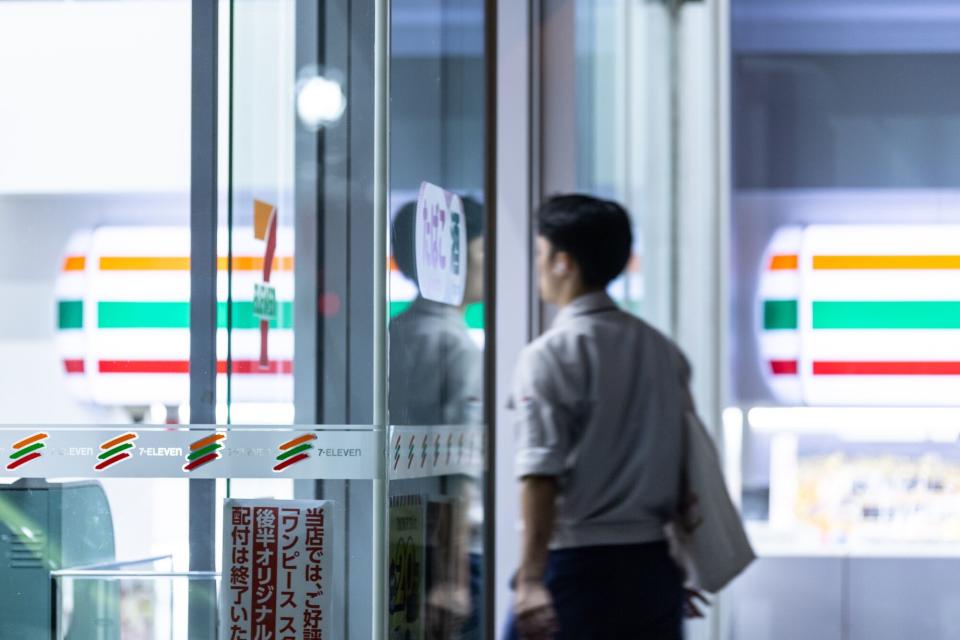Seven & I Dips on News of Protective Steps After Buyout Approach

(Bloomberg) -- Seven & i Holdings Co. shares dropped as much as 3.8% after people with knowledge of the matter said the operator of 7-Eleven stores asked Japan’s government for a designation that would raise potential hurdles for a takeover.
Most Read from Bloomberg
Nazi Bunker’s Leafy Makeover Turns Ugly Past Into Urban Eyecatcher
How the Corti?os of S?o Paulo Helped Shelter South America’s Largest City
The Japanese retailer is seeking designation as a “core” company under the Foreign Exchange and Foreign Trade Act, an upgrade from its current “non-core” status under the law, which would require prior notification of any entity’s purchase of its shares above 10%, the people said. The stock remains up around 10% this year.
“The category is usually reserved for essential industries such as military and energy, but it does clearly show how anti-takeover the company is as they are effectively asking for government protection to ward off the approach,” Andrew Jackson, head of Japan equity strategy at Ortus Advisors Pte, wrote in a note.
Japan’s Ministry of Finance would have to vet any entity seeking to acquire more than 10% of a company considered part of a core industry, which includes sectors such as aerospace, nuclear energy and rare earths. The law was designed to protect the country from security risks, such as the outflow of military technology.
The Japanese operator of 7-Eleven stores made the application after Alimentation Couche-Tard Inc. approached the company last week, one of the people said. It’s not clear whether the ministry and other relevant government agencies will approve Seven & i’s application to become a core company under the law, one person said.
In its application to become a “core” company, Seven & i is arguing that its convenience stores play a critical role in supplying food and supplies in the event of natural disasters, the people said. They also provide municipal services, allowing residents to obtain official documents.
Couche-Tarde hasn’t provided terms or a price for its proposed buyout of Seven & i, which has a market value of ¥5.53 trillion ($38.2 billion). If successful, it would be the largest takeover of a Japanese company, and a rare example of inbound cross-border acquisitions. Although Japan’s government has taken a protectionist stance in the past, new corporate guidelines aimed at injecting more vigor into corporate Japan through improved governance and protections for investors are making such deals more likely.
The Foreign Exchange and Foreign Trade Act has foiled deals in the past. In 2008, for example, concerns over power supply and nuclear energy led Japan to block the London-based Children’s Investment Fund from buying shares in Electric Power Development Co., known as J-Power.
--With assistance from Aya Wagatsuma.
Most Read from Bloomberg Businessweek
Far-Right ‘Terrorgram’ Chatrooms Are Fueling a Wave of Power Grid Attacks
Hong Kong’s Old Airport Becomes Symbol of City’s Property Pain
Losing Your Job Used to Be Shameful. Now It’s a Whole Identity
FOMO Frenzy Fuels Taiwan Home Prices Despite Threat of China Invasion
?2024 Bloomberg L.P.